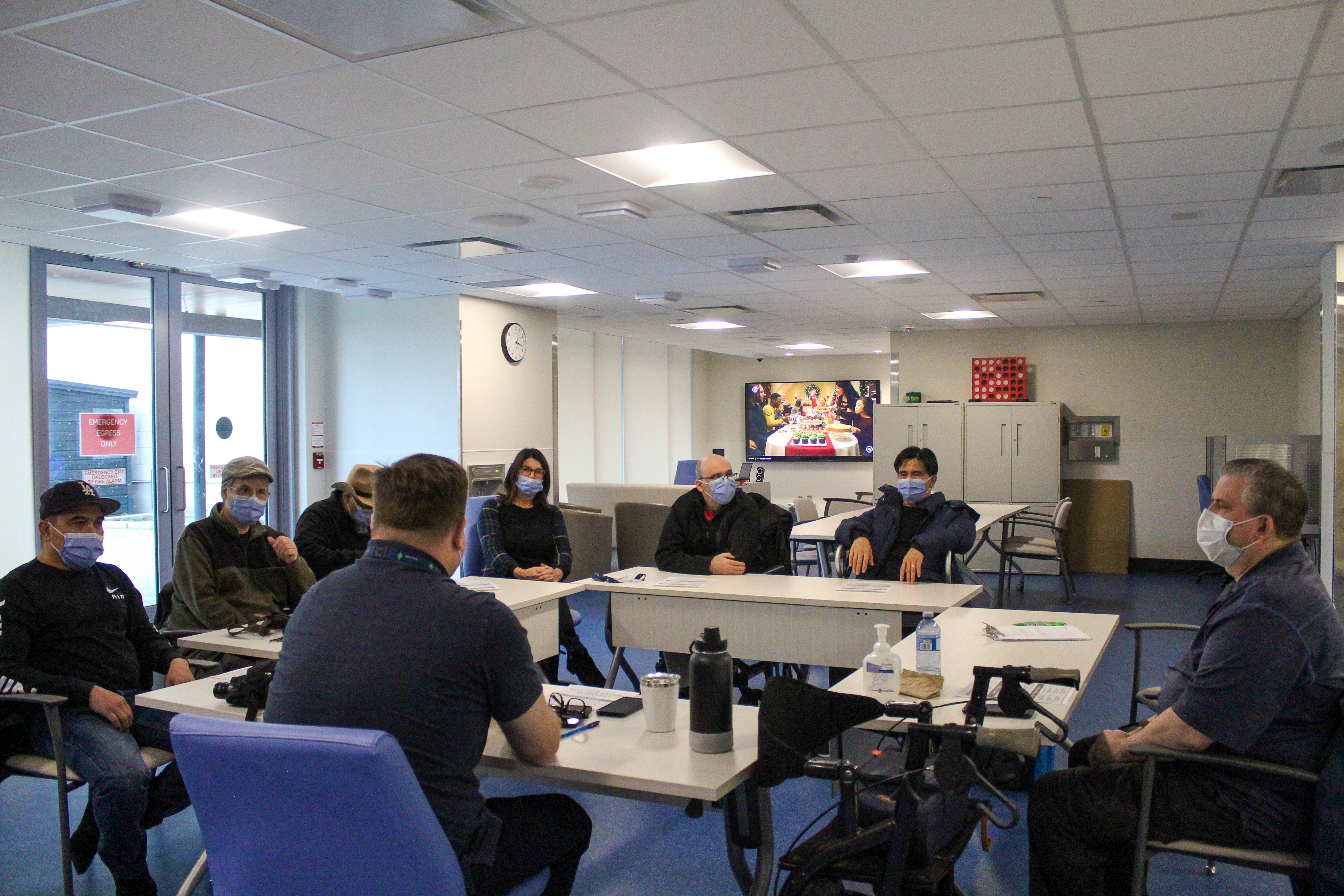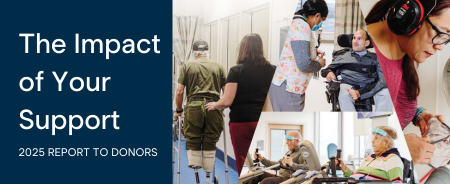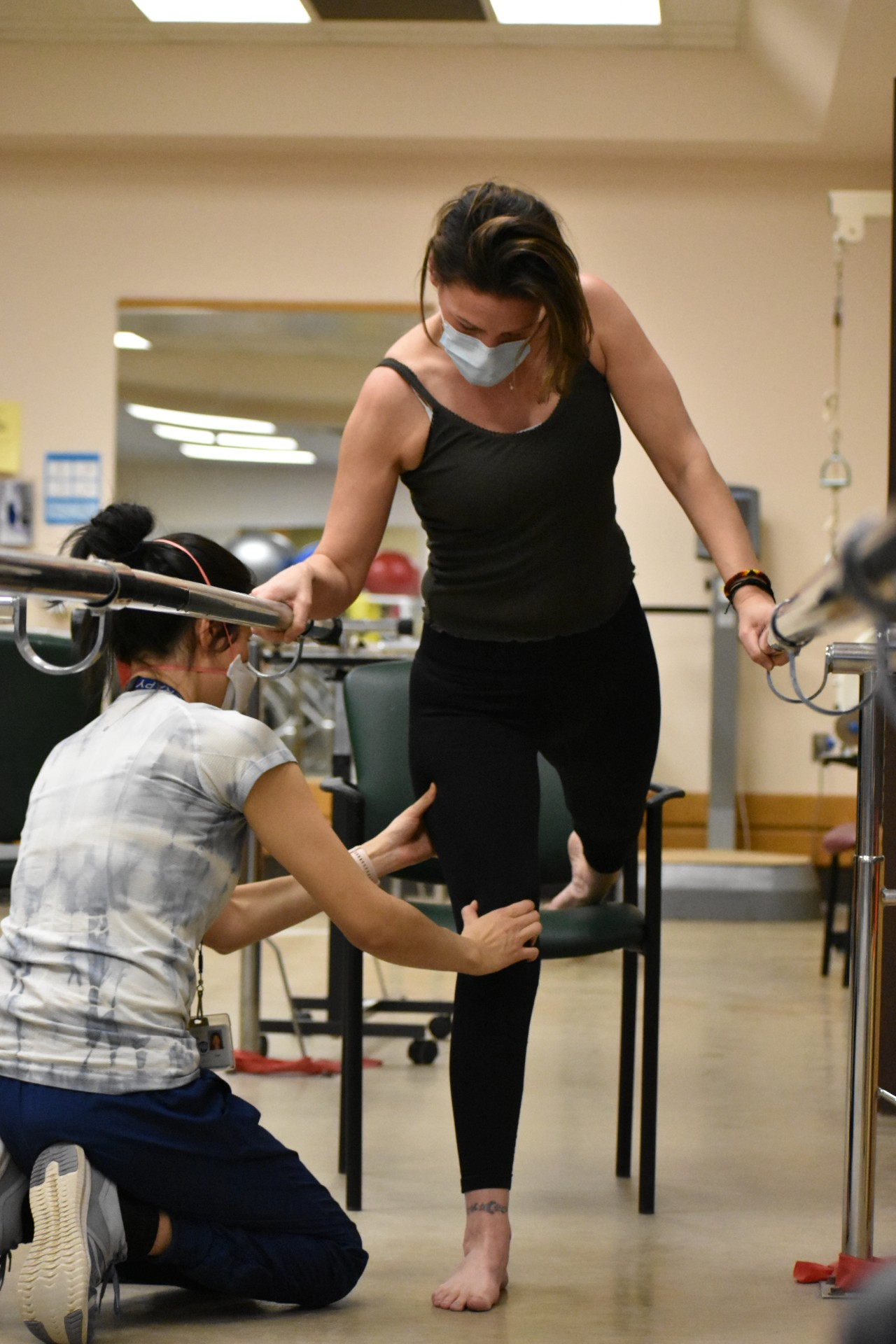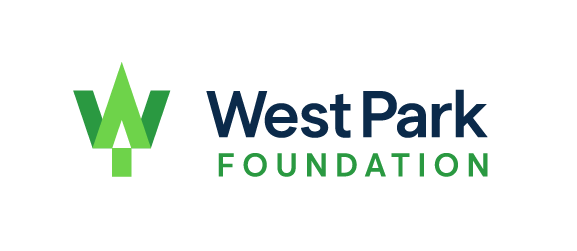
ABI Day Program
“I’m not alone in this.” Acquired Brain Injury Survivors Find Connection at UHN’s West Park
It’s a chilly December day outside, but in a room tucked away on the ground floor of West Park’s new hospital building, the atmosphere is warm and friendly.
Six men sit around a circle of tables, participating in a discussion on Winter Emergency Preparation lead by Behavioural Support Worker Colin Ballantyne. Despite a cross-section of ages and abilities, they have one thing in common: they’re all Acquired Brain Injury (ABI) survivors.

They’re at West Park today for the ABI Day Program, a six-month outpatient program that helps ABI survivors enhance their strengths and learn new skills with the goal of living more independently.
Introduced in 2010, the Day Program provides a vital service to ABI survivors, giving them the skills and confidence to reintegrate into society after a moderate or severe ABI.
“Sometimes people come to us if they’ve been home for a long time, years maybe. Home with family, with the TV. So, they’re getting back into an environment that’s social,” says Ballantyne. “There are demands put on them [in the program]. You have to get up in the morning, you have to get here. You have to contribute.”
Clients attend once a week on Monday, Tuesday or Wednesday. There’s a group outing on Thursdays and Fridays feature a hybrid session, which patients can join in-person or virtually.
The day begins with check-ins and general conversation, before the group transitions to games and activities. These could be anything from Scattergories to Jenga, to a game of “would you rather,” to “guess the song,” memory quizzes and more. They all eat lunch together, followed by an afternoon workshop.

Thursdays, clients can join the group outings, which could be a visit to The Ex, a movie, bowling or a mall walk and are a chance for clients to practise activities like purchasing popcorn or being in crowds in a supportive environment.
The Day Program provides a much-needed service to ABI clients, many of whom struggle to return to a normal schedule and re-integrate into the community.
Claudio says, “I was not in a good place when I started the program. You’re lost in the beginning, especially when you have a stroke. Having a steady program that I’m going to, helps me develop a routine. That routine allows me to feel a little bit of peace.”
He cites “just the talking” as his favourite aspect of the program. “This person went through the same thing as me, they have this advice for me.” He says, “You feel ‘I’m not alone in this.’”
This is exactly what the program aims to do. Ballantyne says that, “what we’re focused on and we’ve been most successful at is community reintegration and building positive relationships. Those are the things we do really well – our gold stars.”



